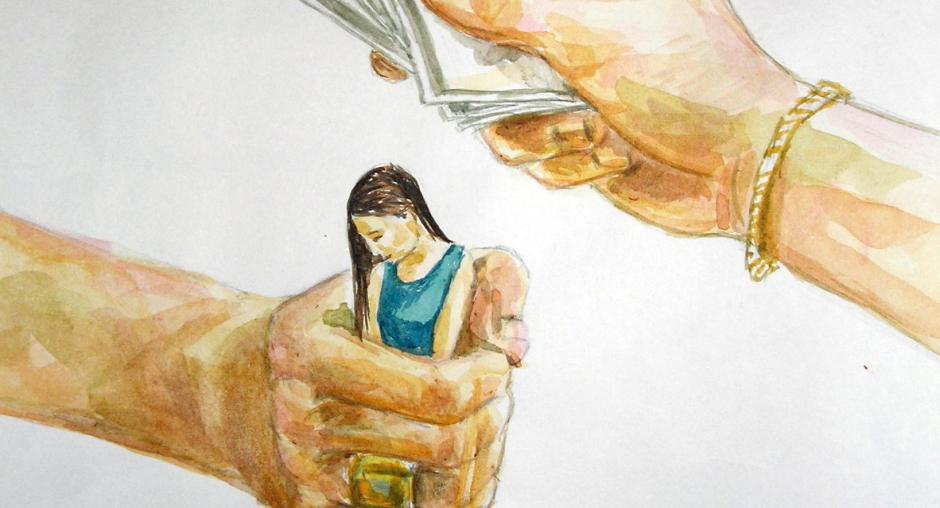Forming a lasting alliance to combat trafficking in human beings
Trafficking in human beings is one of the most ubiquitous and complex security threats we face. Involving people from all participating States and all walks of life, it is sometimes committed by individuals, much more often by organized criminal groups, frequently linked with other profitable illegal enterprises, such as people smuggling, illicit trade in drugs and weapons, corruption, document fraud, money laundering and even terrorism. It is often remarked that organized criminals engaging in this modern form of slavery communicate and co-operate better across ethnic and national lines than do governments or international organizations, even in post-conflict zones, and that they are one step ahead of those working to combat their activities. The transnational organized crime of human trafficking clearly requires a consolidated, unified response.
Alliance against Trafficking in Persons
This point was taken extremely seriously and translated into action by the first OSCE Special Representative and Co-ordinator for Combating Trafficking in Human Beings, Helga Konrad. In intense consultations with the Chairperson-in-Office, the Secretary General, participating States and potential partners, she proposed establishing an informal platform for co-operation among international and non-governmental organizations (NGOs) active in the fight against human trafficking. The initiative received a warm welcome from all and, in July 2004, the Alliance against Trafficking in Persons was born.
The spirit of the Alliance remains strong. Hosted and chaired by the current Special Representative, Maria Grazia Giammarinaro, it combines the efforts of its now over 40 members to develop joint strategies and set a common agenda to stamp out modern slavery. Annual high-level conferences and technical seminars held in Vienna bring the best possible knowledge and expertise to the participating States and, at the same time, provide a global perspective on anti-trafficking activities being undertaken by the international community. In June 2010 in Vienna, the Special Representative convened the 10th Alliance against Trafficking in Persons Conference, which shed light on a particularly hidden form of trafficking, domestic servitude.
The Alliance Expert Co-ordination Team (AECT), which meets twice a year, serves as a consultative forum for the partners. “The Alliance is a good example of how the OSCE can work in a strong partnership to address transnational threats,” said Giammarinaro at its latest meeting. “In this impressive environment, I will continue to work in the spirit of my predecessors. At the same time I intend to further develop the OSCE’s unique cross-dimensional anti-trafficking efforts and take both a broader and deeper approach to anti-trafficking policy, centred on a human rights approach, in the context of co-operative security,” she declared.
In this impressive environment, I will continue to work in the spirit of my predecessors. At the same time I intend to further develop the OSCE’s unique cross-dimensional anti-trafficking efforts and take both a broader and deeper approach to anti-trafficking policy, centred on a human rights approach, in the context of co-operative security.
Maria Grazia Giammarinaro
Other partnerships
In line with the OSCE Platform for Co-operative Security, the Office of the Special Representative also contributes to other anti-trafficking forums, such as the United Nations Global Initiative to Fight Human Trafficking (UN.GIFT). It recently co-ordinated the innovative UN.GIFT study, Analyzing the Business Model of Trafficking in Human Beings to Better Prevent the Crime. “Much of the prevention focus to date has been on the potential victim. This study is an excellent first step towards developing deeper understanding of the criminal side of the human trafficking equation,” says Ruth Pojman, Deputy OSCE Co-ordinator, who first proposed the idea for the project.
Recently, the Office collaborated with the International Organization for Migration (IOM), an Alliance and UN.GIFT partner, to edit and print the Russian version of the IOM Handbook on Direct Assistance for Victims of Trafficking, widely used by NGO service providers who work directly with those rescued from modern slavery. Reflecting the fact that each trafficked person is unique, the Handbook contains practical guidance on how to assist victims from initial contact and screening up to their effective social reintegration. The translated edition assures access to this effective tool for a wide spectrum of Russian-speaking NGOs.
Another partner is the International Governmental Organizations Contact Group on Human Trafficking and Migrant Smuggling, an informal group of mostly Geneva-based international organizations and NGOs working on trafficking, initiated by the Office of the United Nations High Commissioner for Human Rights a few years ago. The Special Representative contributed to a meeting of the Contact Group in May.
Partnerships, be they at the global, regional or even local level, prove effective in the fight against modern slavery when they are based on a shared understanding of trafficking and respect for human rights. That remains the cornerstone of the OSCE’s collaboration in combating this transnational crime of global dimensions.

